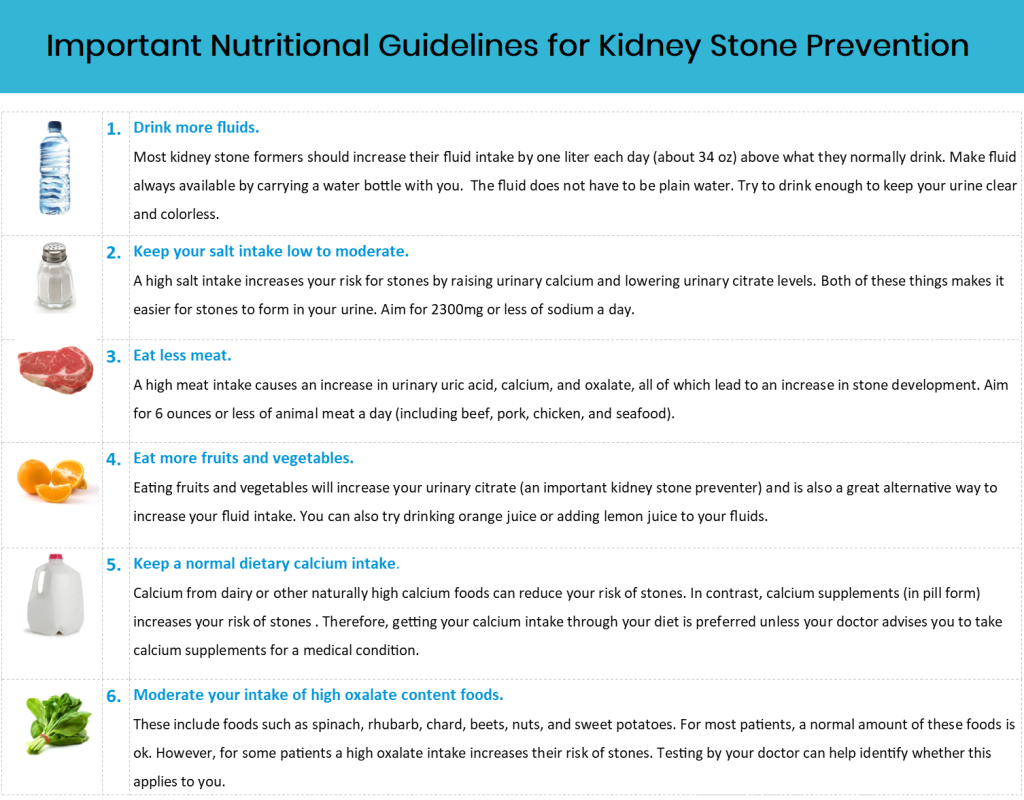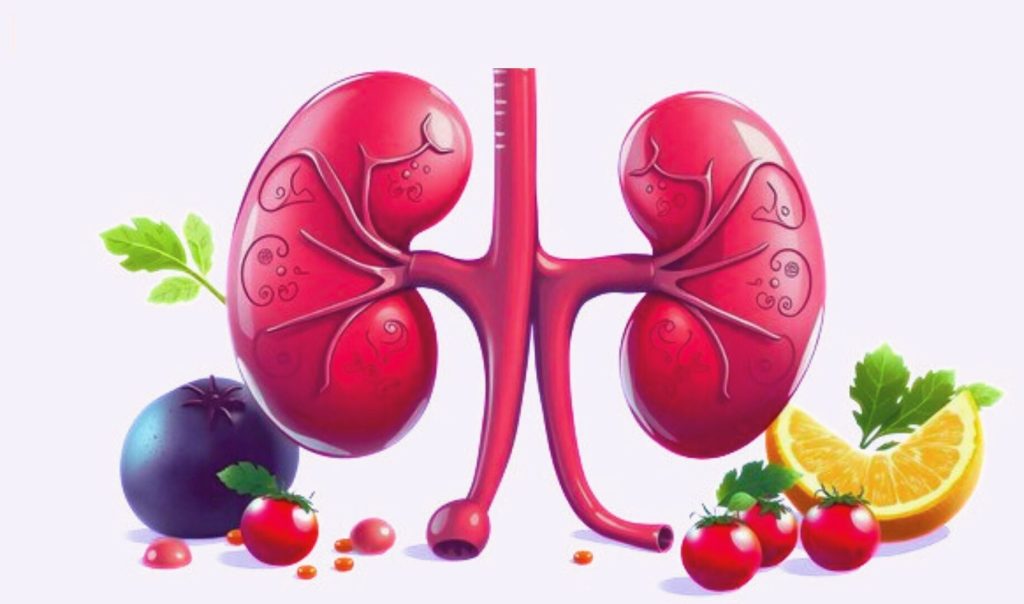Kidney stones, referred to as “renal calculi,” are solid deposits of both salts and minerals that form inside the kidney. Ureteral calculi, which are kidney stones that have travelled into the ureter, can cause chronic discomfort and other consequences if not resolved. A lot of people are unclear that their diet can have an important impact on whether kidney stones may form or not. This blog will help you understand the food recommendations for preventing kidney stones while sustaining healthy urinary health.
Understanding Kidney Stones and Ureteral Calculi
What Are Kidney Stones?
Kidney stones are hard deposits in the kidneys when certain substances, such as calcium, oxalate, and uric acid, become highly concentrated in the urine. These deposits can range in size from a grain of sand to larger, pebble-like structures that may obstruct the ureter.
Types of Kidney Stones
Calcium Stones
They are commonly occurring kidney stones, usually consisting of calcium phosphate or calcium oxalate. These stones form when calcium in the urine combines with oxalate, a substance in many foods. When there’s too much oxalate or less liquid in the urine, crystals can form and eventually develop into stones. Calcium-based stones constitute about 80% of the kidney stones.
Uric Acid Stones
They are formed due to large amounts of 7,9-Dihydro-1H-purine-2,6,8(3H)-trione(uric acid)in the urine, often linked to high-protein diet substances found in certain foods like meat, fish, and some alcoholic beverages or specific medical conditions. Uric acid-based stones constitute about 5%-10% of kidney stones.
Struvite Stones
They are called infection stones made of magnesium ammonium phosphate. They typically develop due to infection in the urinary tract (UTIs), caused by ammonia-producing bacteria that make the urine more alkaline. Struvite-based stones constitute about 10% of kidney stones.
Cystine Stones
A specific kind of kidney stone develops when a surplus of amino acid cystine accumulates in our urine. This condition is known as cystinuria, an uncommon genetic condition. Chances for cystine stones to occur are less than 1%.


Symptoms of Ureteral Calculi
- Painful and Burning Urination Urgency
- Foul-smelling Urine With Abdominal Pain
- Fever And Chills
- Nausea and Vomiting
- Stomach Ache
- Pain in the Pelvis Area
- Kidney Stone Pain Starts from the Waist and Comes Forward Towards the Pelvis
Important Nutritional Guidelines for Kidney Stone Prevention.
1. Hydration is Key
Drinking enough water every day assists in diluting substances in urine which could otherwise form stones. Aim to drink 2-3 liters of water daily. In addition to raising citrate levels, adding lemon to water can help avoid the formation of stones.
2. Moderate Calcium Intake
The most prevalent kind of stone is calcium oxalate, yet restricting dietary calcium is typically not helpful. In reality, calcium binds to oxalate in the intestines, stopping it from absorbing into the bloodstream and producing stones. Consume reasonable amounts of calcium-rich foods, such as dairy products, but check with your doctor regarding calcium supplements.
3. Limit Sodium Consumption
Excess salt can raise calcium levels in the urine, increasing the likelihood of kidney stones. Lowering your sodium consumption helps to reduce this risk. To minimize high salt levels, limit your daily allowance below 2.3 grams and eat fresh, unprocessed meals.

Food to Consume for Kidney Stone Prevention.
1. Leafy Greens and Vegetables
Certain leafy greens contain oxalates, others, such as kale and broccoli, are low in oxalate and high in nutrients that support kidney function. A diversity of veggies offers a balanced diet and may reduce stone risk.
2. Plant-Based Proteins
Animal protein, particularly from red meat, can raise uric acid levels, which contributes to kidney stones. Plant-based protein foods such as beans, lentils, and tofu help minimise the chance of developing stones.
3. Citrate-Rich Fruits
Citrate, present in lemons, limes, and oranges, prevents stone formation by adhering to calcium in urine. Eat these fruits daily or try adding lemon juice to your water.
Food to not consume to prevent Kidney Stones
1. Diet High in Oxalate
Diet that are rich in oxalate include spinach, beets, almonds, and certain cereals. While you do not need to eliminate these foods, limiting your intake and supplementing with calcium-rich meals can help lessen your risk.
2. Animal Proteins
Red meat and shellfish can raise uric acid levels, leading to uric acid stones. Moderation is crucial, and plant-based proteins should be included.
3. Sugary and Processed Foods
High sugar levels, particularly from fructose and refined carbohydrates, can elevate your chance of developing kidney stones. Limiting sugary drinks, candies, and processed snacks promotes kidney and general health.
Sample Diet Plan for Kidney Stone Prevention
Here’s an example meal plan that reduces the danger of kidney stones while delivering adequate nourishment.
Day 1
• Breakfast: Greek yoghurt, cut strawberries, chia seeds, and almonds.
• Lunch: Bathua salad with grilled veggies, chickpeas, and lemon-tahini dressing.
• Dinner: Baked Rohu fish with steamed broccoli, sweet potato, and mixed greens.
Day 2
• Breakfast: smoothie with kale, banana, berries, and almond milk.
• Lunch: Daal soup with carrots, celery, and whole-grain bread.
• Dinner: Grilled chicken with roasted cauliflower and Bathua.
Day 3
• Breakfast: Muesli with honey, fresh blueberries and walnuts.
• Lunch: Spinach and avocado salad with cherry tomatoes, boiled egg, and olive oil dressing.
• Dinner: Tofu stir-fried with mushrooms, capsicum, and brown rice.
Lifestyle Tips for Kidney Stone Prevention
1. Physical Activity
Regular exercise helps regulate body weight, which lowers the chance of stones. Aim to do at least 150 minutes of moderate exercise per week.
2. Regular Health Check-ups
Routine medical visits enable the early identification and control of potential risk factors. If you have a history of kidney stones, visit your doctor about monitoring and adjusting your diet.
3. Avoiding Excessive Vitamin C Supplements
High dosages of vitamin C can raise oxalate levels. Get this vitamin from natural sources, such as fruits and vegetables.

Vegetables to eat to prevent kidney stones
1. Low-Oxalate Vegetables
- Cabbage: Low in oxalates and rich in fiber aids in digestion.
- Cauliflower: Low-oxalate option with anti-inflammatory properties.
- Bell Peppers: Packed with vitamin C and antioxidants.
- Cucumbers: High in water content, which helps with hydration.
- Zucchini: Low in oxalates and an excellent source of vitamins.
2. Vegetables Rich in Magnesium
- Broccoli: Contains magnesium, which can help reduce oxalate absorption.
- Spinach (in moderation): Although high in magnesium, spinach is also high in oxalates, hence consume less.
- Avocado: High in magnesium, potassium, and healthy fats.
3. Potassium Rich Vegetables
- Tomatoes: High in potassium and low in oxalates, beneficial for kidney health.
- Carrots: High in potassium, which can help with reducing urinary calcium levels.
4. Citrate-Rich Vegetables
- Lemons and Limes: Adding lemon or lime juice to meals or water can increase urinary citrate, which may reduce stone formation.
- Green Beans: Contains a small amount of citric acid and is generally safe for kidney health.
Vegetables that should not be consumed
1. High-Oxalate Vegetables
- Spinach: Very high in oxalates, which can increase calcium oxalate stones.
- Beets: Both the root and greens are oxalate rich and should be eaten sparingly.
- Malabar Palak: High in oxalates; it’s best to minimize consumption.
- Rhubarb: Extremely high in oxalates and can contribute significantly to stone formation.
- Okra: Contains moderate to high levels of oxalates.
- Potatoes (especially sweet potatoes): While sweet potatoes are nutritious, they contain oxalates and should be limited.
2. High-Sodium Vegetables (if processed or pickled)
- Pickled Vegetables: These can be sodium rich, which may increase calcium excretion in urine, increasing the chance of kidney stone formation.
- Canned Vegetables with Added Salt: Canned vegetables are often high in sodium; opt for fresh or low-sodium versions when possible.
3. Other Vegetables to Moderate
- Tomato Products (Sauce or Paste): While tomatoes themselves are fine in moderation, concentrated tomato products can increase calcium oxalate risk due to their concentration.
- Soy Products (Soybeans): While nutritious, soy contains oxalates, so consume in moderation if you’re at risk.
To reduce the risk of kidney stones, it’s generally advised to limit or avoid certain types of meat and animal proteins. High animal protein intake may escalate uric acid levels and may contribute to the formation of certain variety of kidney stones, particularly uric acid stones. Here’s a breakdown of meats to avoid or consume in moderation:
1. Red Meat
- Beef, Lamb, Pork: These meats are high in purines, which can raise uric acid levels and contribute to stone formation. Eating large amounts may increase the risk of kidney stones.
2. Organ Meats
- Liver, Kidney, Heart: Organ meats are rich in purines, so it’s best to avoid them if you’re prone to kidney stones, especially uric acid stones.
3. Processed Meats
- Bacon, Sausages, and Deli Meats: Processed meats are frequently heavy in sodium, which can cause excess calcium in the urine, encouraging kidney stone formation. The preservatives and chemicals included in processed meats can also strain the kidneys.
4. Poultry (in Excess)
- Chicken, Turkey: While chicken is leaner than red meat, it still contains purines. Consuming high amounts may raise uric acid levels, thus moderation is recommended.
5. Fish and Seafood (Certain Types)
Sardines, Anchovies, Mackerel, Herring: These fish are heavy in purines, which can raise uric acid levels. They should be consumed carefully if you have a history of uric acid stones.
Conclusion
A diet that promotes hydration, balanced calcium, low sodium, and limited animal protein intake can help avert kidney stones and ureteral calculi. At Urosonic, we value your health and offer advice on necessary dietary and lifestyle practices for kidney stone management. With the appropriate technique, you can lower your risk and maintain good kidney health for years.
